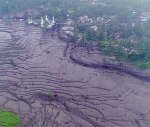You are here
Palestine on the back burner
Apr 05,2016 - Last updated at Apr 05,2016
Contrary to what a large number of analysts tends to believe, the Israeli-Palestinian conflict has not been relegated to the obsolete Middle East filing cabinet.
As most Arab states are totally preoccupied with their own problems, it is not unusual that they organise the order of their priorities in a manner compatible with their national interests.
The League of the Arab States, which for the last seven decades of its age has been totally committed to the Palestinian cause, is currently disabled.
Like any other international or regional organisation, the league’s performance is normally the resultant of the common will of its members.
In many ways, this same notion applies to the United Nations, where major disagreements on any issue among its members reflect negatively on its performance.
The Arab League member states have always been divided on most issues pertaining to the Arab world.
The conventional pretence that while the Arabs did traditionally disagree on numerous issues, they remained constantly united on their adopting of the Palestinian cause is also essentially flawed.
Right from the beginning, the Arab states also disagreed, often substantially, on the handling of the issue of Palestine.
On the face of it, the general perception that only few care about the Israeli-Palestinian conflict these days is right.
The US, supposedly the sole sponsor of the so-called peace process, is not in a position to introduce any new ideas for reactivating the moribund peace process, following the total failure of Washington’s peace initiatives a couple of years ago and during a presidential election year.
The UN hardly takes any initiative unless any of its influential members, in this case the US, does.
Israel is completely opposed to any change in the very convenient status quo and the Palestinian Authority is totally powerless and only responds, quite inertly, to external calls.
The general situation in most Arab states is hardly any better, with active wars stretching their political and financial assets to the very limit.
Clearly overwhelmed, most Arab states are in no position to top their tasks with the thorny problem that is the Israeli-Palestinian conflict; thorny, because any such involvement could complicate their relations with Washington, whose good will is constantly vital for protecting their interests.
It is also right that this issue was repeatedly sidelined in the past for almost the same reasons: disagreement on handling it or preoccupation with other more urgent matters.
What is not that accurate, though, is the assumption that this time the issue is shelved forever.
Practically this cannot be possible.
No matter how indifferent or impervious concerned parties are, conflicts of such magnitude do not just lapse. They tend to keep reminding of their existence in ways that no one can ignore.
The lessons of history are a very good guide for understanding how abnormal situations can remain calm on the surface while pressure and frustration continues to build up underneath until it explodes in everyone’s face.
History has been repeatedly reminding us that problems do not disappear when ignored. Rather, they grow bigger, they become more complex, they coagulate until they transform into incurable malignancies.
This is the case of the ignored Arab-Israeli conflict, often reduced to a Palestinian-Israeli conflict.
Undue negligence, deliberate procrastination, denial, deception, arbitrary handling and outright failure over more than seven decades did not make this conflict go away or easier to resolve. As a matter of fact, missed opportunities, not by the Palestinians or the Arabs, as commonly believed, and accumulated failures created a situation that is impossible to resolve.
Already small eruptions are beginning to manifest themselves in the occupied Palestinian lands, with young Palestinians still determined to risk their lives by attacking Israeli settlers, or civilians or soldiers, even when attackers are instantly executed.
Though clear, the message has again been ignored, even deplored.
Few are viewing this recent outbreak of violence as a fresh reminder that the longest and the most ruthless and cruel occupation in modern history is not tenable, it is never going to lead to regional peace and stability, it is not going to stop Palestinians from resorting to violence when their peaceful pleas for justice are repeatedly ignored, and it will never make the Israelis safe and secure.
The alternative, while convenient for many, including the Palestinian Authority president, is to condemn the knife attacks as reckless and self-inflicting.
Rather than announcing to the whole world that the recent wave of Palestinian violence is the logical outcome of the occupation and its illegal practices, and therefore the occupation should end, the PA president announced that his security forces are routinely searching school children’s bags to confiscate any hidden knives and that they are doing their utmost to prevent any anti-occupation actions.
In other words, the Palestinian Authority is defending and protecting the occupation.
No one should rejoice at the execution of young Palestinian boys or girls who opt to attack Israelis even when the motive is purely patriotic. No one should even encourage such suicidal behaviour.
But blind suppression is not an option either.
If the Palestinians are to be convinced to stop acts of violence against their Israeli occupiers and against the Jewish settlers who are gradually colonising their land and threatening their very existence, they must be offered an alternative.
For them to agree to be patient, Palestinians must see movement in the right direction, the direction of liberation and recognition of their rights.
That is hardly happening.
The history of the Arab-Israeli conflict has been moving in cycles. Continued occupation and aggression charged the situation until it was defused by a devastating war.
Wars alternated between Gaza and Lebanon. The cycle will continue to turn, whether the issue is ignored or not.












